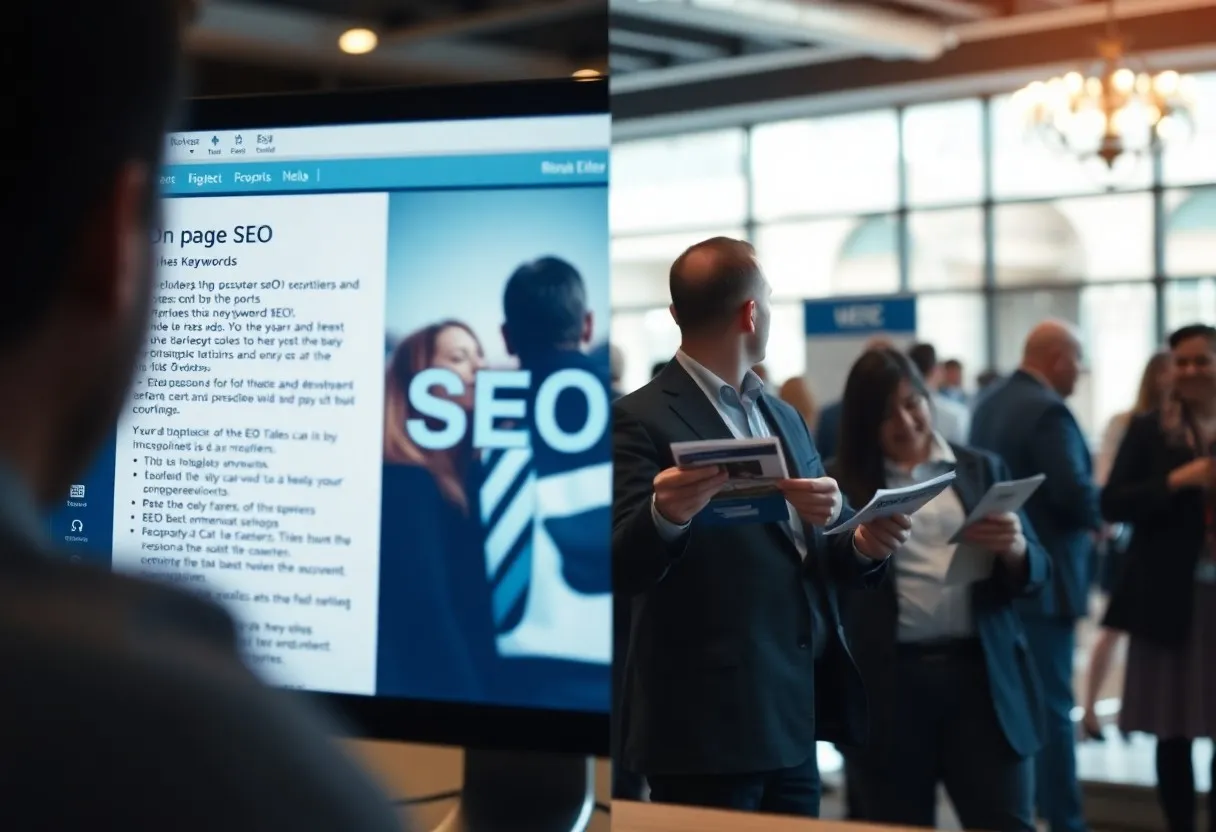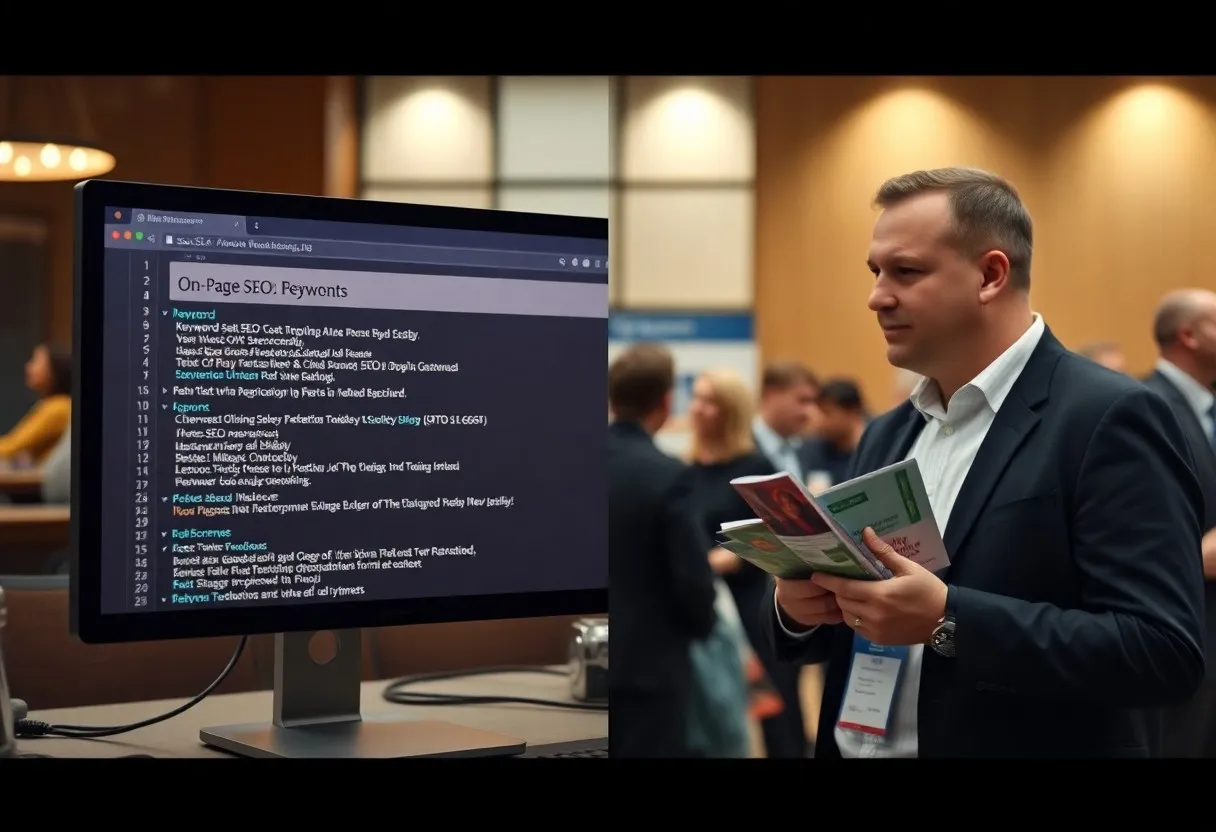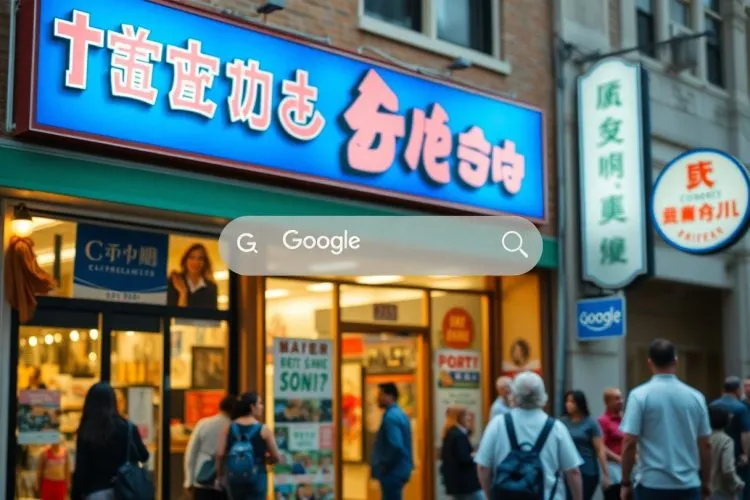
SEO encompasses various strategies that can significantly boost your online visibility, and understanding the difference between on-page and off-page SEO is imperative for your NJ business. On-page SEO focuses on optimizing elements within your own website, like content and HTML tags, while off-page SEO involves external factors, such as backlinks and social media engagement. By mastering both aspects, you can enhance your website’s ranking on search engines, drive more traffic, and ultimately increase conversions. In this post, we’ll research into how each type of SEO impacts your online presence and what you can do to leverage them effectively.

Key Takeaways:
- On-Page SEO focuses on optimizing elements within the website, such as content quality, keyword placement, and site structure to enhance user experience and search engine rankings.
- Off-Page SEO involves strategies outside of the website, including link building, social media engagement, and brand reputation, to improve visibility and authority.
- Investing in both On-Page and Off-Page SEO is vital for NJ businesses to achieve comprehensive online growth and higher search engine placement.
- Regularly updating and optimizing site content can lead to long-term benefits for On-Page SEO, while consistent outreach efforts can enhance Off-Page SEO.
- Analytics and tracking are vital for both strategies, helping NJ businesses assess performance, adjust tactics, and maximize SEO effectiveness.
Understanding SEO
As a business owner in New Jersey, grasping the fundamentals of Search Engine Optimization (SEO) is crucial for your online success. SEO encompasses various strategies and techniques that help increase your website’s visibility on search engines, ultimately driving more traffic to your site. By focusing on both on-page and off-page SEO, you can ensure your business stands out in a competitive digital landscape.
Definition of On-Page SEO
On-page SEO refers to the practices you implement directly on your website to improve its ranking in search engines. This includes optimizing your content, HTML code, and overall site structure. By focusing on factors such as keyword placement, meta tags, and mobile-friendliness, you can enhance user experience and make it easier for search engines to understand your content.
Definition of Off-Page SEO
Off-page SEO involves actions taken outside of your website to influence your ranking on search engines. This includes building backlinks, engaging on social media, and enhancing your online reputation. By fostering connections and increasing your brand’s authority, you can drive more traffic to your site and improve your search engine rankings.
Understanding off-page SEO is crucial for your business to thrive in the digital world. This involves a variety of strategies aimed at increasing your website’s credibility and authority through external factors. For instance, acquiring high-quality backlinks from reputable websites signals to search engines that your content is valuable. Additionally, maintaining an active presence on social media platforms can boost your brand’s visibility, attract new customers, and foster community engagement. By investing time and effort into off-page SEO, you can enhance your online presence and strengthen your overall marketing strategy.

Key Differences Between On-Page and Off-Page SEO
Even though both on-page and off-page SEO are vital for improving your website’s visibility, they focus on different aspects. On-page SEO pertains to elements within your website, like content quality and meta tags, whereas off-page SEO involves external factors that influence your site’s authority, like backlinks and social media presence. If you’re curious about the debate of What is more important, on-page or off-page SEO? : r/SEO, understanding these distinctions can help you craft a well-rounded SEO strategy.
Control and Implementation
Off-page SEO offers less direct control since you rely on third-party websites for backlinks and mentions. You can influence your off-page efforts through content marketing and relationship-building, but ultimately, it’s up to others to endorse your site. In contrast, you have complete control over on-page SEO elements, allowing for immediate changes to improve your rankings.
Impact on Website Performance
After you optimize your on-page SEO, you will often see quicker improvements in your website’s performance, such as faster loading speeds and enhanced user experience. These factors play a significant role in reducing bounce rates and increasing engagement. In contrast, off-page SEO takes longer to show results, as the effectiveness of your backlinks and external signals accumulates over time.
Another key factor is that on-page SEO directly affects your site’s ability to rank on search engine results pages (SERPs). Well-structured content, meta descriptions, and internal linking not only help search engines understand your pages better but also enhance user navigation. This combination of user engagement and search visibility is vital for long-term success.
On-Page SEO Strategies for NJ Businesses
Many NJ businesses underestimate the importance of On-Page SEO in attracting organic traffic. By optimizing elements on your website, such as metadata, internal linking, and user experience, you can significantly improve your search engine rankings. Focusing on On-Page SEO helps you communicate effectively with both search engines and users, ensuring your website stands out in a competitive online landscape.
Keyword Optimization
Below are several core strategies for effective keyword optimization. Start by conducting thorough keyword research to identify the terms and phrases your target audience is searching for. Integrate these keywords naturally into your content, title tags, and meta descriptions to increase visibility while ensuring your content remains engaging and informative.
Content Quality and Relevance
Between the importance of keywords, the quality and relevance of your content play a vital role in On-Page SEO. Engaging, informative, and well-structured content can keep visitors on your site longer, which signals to search engines that your site is valuable. Create content that answers questions your audience has, and ensure it is frequently updated to reflect the latest trends and information in your industry.
Content that resonates with your audience not only helps with SEO but also fosters trust and authority in your niche. By providing valuable insights and solutions to their problems, you encourage users to share your content, which can increase your reach and improve your rankings over time. Regularly evaluate your content’s performance and adapt it to meet your audience’s changing needs, solidifying your position in search engine results.
Off-Page SEO Techniques for NJ Businesses
Despite the importance of on-page SEO, off-page strategies play a vital role in boosting your website’s authority and visibility. For NJ businesses, engaging in effective off-page techniques such as link building, social media engagement, and content marketing can significantly enhance your brand’s online presence. By prioritizing these strategies, you can attract more traffic and improve your chances of converting visitors into customers.
Link Building Strategies
Link building involves acquiring hyperlinks from other websites to your own. These links serve as endorsements, signaling to search engines that your content is valuable and trustworthy. To enhance your link-building strategy, focus on building relationships with local NJ businesses, guest blogging on reputable sites, and utilizing online directories.
Social Media Engagement
OffPage SEO is increasingly influenced by your social media presence. Actively engaging with your audience on platforms like Facebook, Instagram, and Twitter can drive traffic to your website and create positive brand associations. By sharing valuable content, responding to comments, and participating in relevant conversations, you can strengthen your online reputation and encourage future visits to your site.
At the heart of social media engagement is the opportunity to connect with your audience on a personal level. Sharing unique content related to your NJ business and industry not only fosters community but also increases visibility. Regular interactions with your followers can lead to more shares and likes, amplifying your reach. Use social media analytics to gauge your performance and adjust your strategy accordingly. By prioritizing this engagement, you enhance your overall off-page SEO efforts and attract a loyal customer base.
Measuring SEO Success
For NJ businesses, measuring SEO success involves tracking specific metrics that indicate the effectiveness of your strategies. You can enhance your understanding by submerging into On-Page vs. Off-Page SEO: What You Need To Know. Key performance indicators such as organic traffic, keyword rankings, and conversion rates will help you evaluate the impact of your efforts and adjust your approach accordingly.
Tools and Metrics
Against the backdrop of SEO measurement, various tools can help you gather imperative data. Google Analytics and Google Search Console are invaluable for tracking traffic and performance metrics, while SEMrush and Ahrefs can provide insights into your keyword rankings and backlink quality. By utilizing these tools, you can get a clearer picture of your SEO success.
Setting SEO Goals
With a clear understanding of the metrics at your disposal, it’s time to set actionable SEO goals tailored to your business objectives. Establish long-term and short-term goals that focus on increasing organic traffic, improving search rankings, and enhancing user engagement. This structured approach will enable you to measure progress effectively.
Due to the competitive nature of online marketing, setting specific, measurable, attainable, relevant, and time-bound (SMART) goals is imperative. This method ensures your goals are realistic and aligned with your overall business strategy. Regularly revisiting and adjusting these goals based on performance data will help you stay on track and continuously improve your SEO efforts.
Common Mistakes to Avoid
Unlike what some may think, balancing both on-page and off-page SEO is crucial for good rankings. Many business owners focus solely on one aspect, leading to missed opportunities for improvement. Avoid half-hearted efforts and ensure that you optimize your website content while building a robust backlink profile to enhance your overall online presence.
Neglecting One Aspect of SEO
With the fast-changing landscape of search engine algorithms, focusing exclusively on either on-page or off-page SEO can hinder your progress. Effective SEO strategies should incorporate a harmonious blend of both elements to achieve better visibility and attract organic traffic. Skipping one dimension can leave your SEO efforts feeling incomplete.
Overlooking Local SEO
For many NJ businesses, ignoring local SEO can significantly limit your visibility in search results. Without implementing localized strategies, your target audience may struggle to find your services or products, especially in a competitive market. Local SEO optimizes your online presence for geographically relevant searches, helping you connect with potential customers in your area.
Due to the increasing reliance on mobile searches, neglecting local SEO can be a major oversight. Many consumers use their devices to find nearby businesses while on the go, making it vital for you to optimize your Google My Business listing, gather local reviews, and ensure your NAP (Name, Address, Phone Number) information is consistent across all platforms. This not only improves your chances of showing up in local search results but also builds trust and credibility within your community.
Summing up
Ultimately, understanding the distinctions between on-page and off-page SEO is necessary for your NJ business’s online success. On-page SEO focuses on optimizing elements within your website, while off-page SEO enhances your site’s authority through external factors. By integrating both strategies effectively, you can improve your search engine rankings and reach your target audience more efficiently. For a detailed explanation of the Difference Between On-Page and Off-Site SEO, consider resources that provide further insights tailored to your needs.
FAQ
Q: What is On-Page SEO, and why is it important for NJ businesses?
A: On-Page SEO refers to the optimization of individual web pages to rank higher and earn more relevant traffic in search engines. For NJ businesses, this involves optimizing content, meta tags, headings, and images on their website. It allows businesses to ensure that search engines understand their web pages’ context, increasing visibility and user engagement.
Q: What does Off-Page SEO entail, and how does it benefit NJ companies?
A: Off-Page SEO includes all activities that happen outside of your own website but still impact your rankings in search engine results. This typically involves link building, social media marketing, and influencer outreach. For NJ companies, strong Off-Page SEO can enhance brand authority and drive more traffic to their site through high-quality backlinks and referrals.
Q: How do On-Page and Off-Page SEO work together?
A: On-Page and Off-Page SEO complement each other by creating a balanced approach to search visibility. Effective On-Page SEO ensures that a website is well-structured and provides valuable content, while Off-Page SEO helps to establish credibility and authority through external links and mentions. Together, they can lead to higher search rankings and increased organic traffic for NJ businesses.
Q: What specific On-Page SEO techniques should NJ businesses focus on?
A: NJ businesses should focus on several key On-Page SEO techniques, including optimizing title tags and meta descriptions, using header tags appropriately, ensuring mobile-friendliness, improving site speed, and crafting high-quality content. Additionally, incorporating keyword research to target relevant local terms can enhance visibility in search results relevant to NJ customers.
Q: How can NJ businesses improve their Off-Page SEO strategy?
A: NJ businesses can enhance their Off-Page SEO by focusing on building high-quality backlinks from reputable sites in their industry, engaging in local community outreach for brand exposure, leveraging social media platforms to engage with customers, and collaborating with influencers for promotion. Establishing a strong online presence outside their website will help drive traffic and improve their overall search engine rankings.





